
The aim of the CLARIN Ambassadors Programme is to raise awareness about and encourage participation in CLARIN ERIC in disciplines and communities that are not yet fully integrated in CLARIN.
Ambassadors are appointed with a two-year mandate to actively promote CLARIN by:
- Seeking opportunities to promote CLARIN within relevant projects, scholarly networks, institutions, and research infrastructures
- Attending key events in their field to actively promote CLARIN with keynote talks, panel discussions, masterclasses etc.
- Generating visibility for their activities through CLARIN's newsletter, website and other promotional formats, such as interviews, blog posts, and brochures.
CLARIN Ambassadors
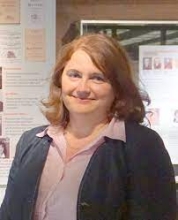
Cristina Vertan is Senior Research Data Engineer at the Herder Institute for Eastern European History in Marburg a.d. Lahn (Germany), working currently on data discovery and data modelling. In her research she is using a mixed methods approach combining methods from traditional humanities (hermeneutics) and computer science (knowledge representation, natural language processing). A particular focus of her research is on less resourced languages (historical languages with non-Latin script as well as languages from Eastern Europe). She is a former Humboldt Fellow (University of Hamburg, 2002-2003) and holds a Ph.D. in computer science from the University of Bucharest (2000) and a Master in Statistics from the Free University in Brussels (1994). Before joining the Herder Institute, she worked at the University of Hamburg (Department of Natural Language Processing) for more than 20 years, being one of the co-founders of the research group 'Computerphilology' (2002-2020). Between 2020 and 2023, she was member of the DH-Group at the Berlin Academy of Science. Between 2017 and 2021, she was leading the HerCoRe – Hermeneutics and Computer-based approach of Reliability Consistency and Vagueness in historical documents, funded by the Volkswagen Foundation and dealing with the challenging topic of representation and interpretation of vague and uncertain information in DH-projects. She was principal investigator in several projects dealing with historical languages: TraCeS (historical Ethiopic, 2014-2018), Thesaurus Linguae Aegyptiae (Egyptian 2021-2023), Teuchos (2007-2010, classical Greek), Text database and dictionary of classical Maya (ongoing since 2018). She is author of GeTa, a multilevel annotation tool for classical Ethiopic as well as ALMAH, the first annotation tool for classical Maya. In projects like Language Technology for eLearning, or ATLAS-Applied Technology for language-aided CMS, the focus of her research was on multilingual applications involving East-European languages. Cristina Vertan was co-organiser of a series of workshops dedicated to natural language processing and digital humanities in the Eastern Europe. One result of the her activities in this area is the book Multilingual Processing in Eastern and Southern EU Languages: Low-Resourced Technologies and Translation. See her personal web page.
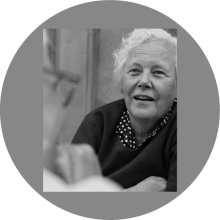

Eva Soroli is Associate Professor of Psycholinguistics at the University of Lille (France), Lead of the Language Re-appropriation team of the CNRS (National Centre of Scientific Research) STL lab. She is member of the National Committee on Language Sciences (Section 34),of the Interdisciplinary Commission Science and Data (CID 55) of the CNRS, and member of the CLARIN Knowledge Centre CORLI of the French Infrastructure for Digital Humanities Huma-Num. Trained in linguistics, cognitive science and psycholinguistics, she was awarded her MSc at the University of Paris-Sud Saclay, and her PhD at the University of Paris 8. She is interested in the relationship between language and thought in typical and atypical populations (main research areas: cognitive linguistics, corpus linguistics and neurolinguistics). Her current projects involve experimental and corpus investigations from a cross-linguistic perspective combining offline and online data (e.g., oral elicited corpora, non-verbal data, eye tracking, reaction times) on several research domains: bilingualism, L1/L2 acquisition, language assessment, aphasia speech, language and cognitive processing.
For more information, watch the video interview with Eva Soroli or read the Behind the Scenes interview.


Satu Saalasti is an Assistant professor of Speech and Language Pathology at the University of Eastern Finland. Her research interest is in the multimodality of communication especially in clinical populations. Her previous studies include multisensory speech perception and comprehension of instructions in individuals with autism. Furthermore, she studied the neural characteristics of listening to, reading, and lip-reading a naturalistic narrative using functional magnetic resonance imaging. She is also a steering group member of DELAD - initiative, which is promoting sharing disordered speech data among researchers.
Past CLARIN Ambassadors
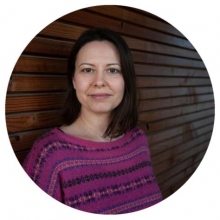
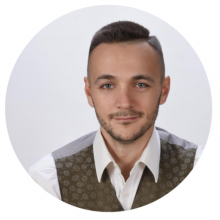
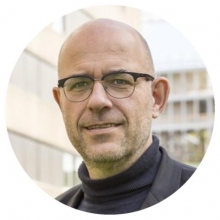

If you have any questions regarding the CLARIN Ambassadors Programme, please email us at ambassadors [at] clarin.eu (ambassadors[at]clarin[dot]eu)